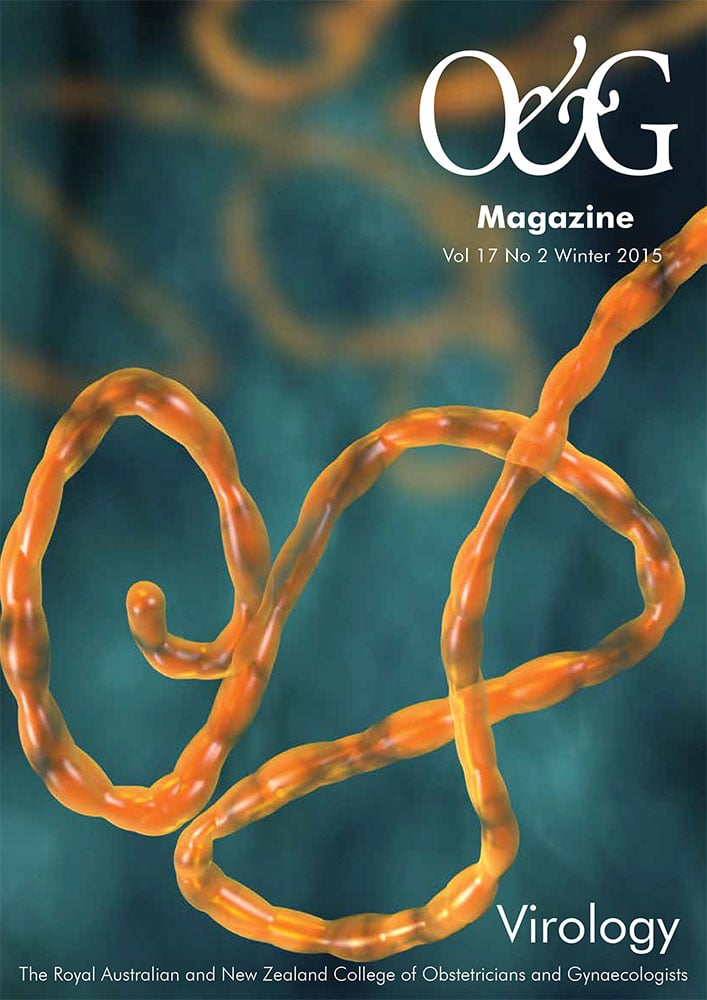Vaccines stimulate the immune system to produce a protective immune response that mimics the response to natural infection; a process known as active immunisation. The protection induced by vaccines may involve cell-mediated immunity in addition to antibody responses. Therefore, despite the fact that antibody levels induced by vaccination tend to be lower than those produced by natural infection and may decline over time, long-lived protection may still be provided. The different types of vaccines (live attenuated, whole cell killed, protein or polysaccharide subunit) immunise to varying degrees by inducing B-lymphocytes, with some also generating cellular immunity. This is why some vaccines require boosters to provide ongoing or longer durations of protection. For example, vaccines containing polysaccharide antigen offer shorter lived protection than vaccines containing protein, because the immune response does not involve the T-lymphocytes needed for long-term immune memory.
Why do some people fail to respond?
Some individuals experience symptomatic or asymptomatic infection despite previous immunisation. Infection after immunisation can be owing to vaccine factors, resulting in inadequate antigenic stimulation, or host factors, owing to an inadequate immune response to an adequate antigen challenge. In Australia, where high-quality vaccines are available, vaccine failure is unlikely to be owing to a manufacturing fault, but may be owing to expiry of the shelf-life, inadequate cold chain maintenance during transport and storage or incorrect vaccination technique.
Primary and secondary host factors may lead to vaccine failure. In primary vaccine failure the patient fails to develop an immune response to the vaccination. The causes include host immune factors, such as immunosuppressive therapies and recognised immune deficiency illnesses, but can occur in a small proportion of otherwise immunocompetent individuals. Those who have recently received antibody-containing blood products, such as immunoglobulin or blood transfusion, may have an impaired vaccine immune response. Likewise, persistence of passively acquired maternal antibody may attenuate the immune response in infants.
Secondary vaccine failure is where the patient develops an initial immune response, but when subsequently challenged with natural infection the protective response is inadequate to prevent disease. Secondary vaccine failure is more likely with certain vaccines, owing to the type of immune response generated. The post-vaccination immune response may wane over time, especially if boosting from exposure to natural infection does not occur, so that the longer the duration since vaccination the more likely is secondary vaccine failure. Infection following secondary vaccine failure usually has fewer and less severe symptoms compared to infection in unvaccinated individuals.
Rubella
Rubella causes a self-limiting illness in children and adults, but is associated with a high risk of multiple congenital abnormalities if acquired in the first 12 weeks of pregnancy. After the first trimester, the frequency and severity of fetal damage following maternal infection decreases significantly and is rare after the 16th week of pregnancy, although hearing deficit may occur up to the 20th week.
Serological testing for immunity
Serological testing for immunity to rubella after routine measles-mumps-rubella (MMR) vaccination of children is not recommended. However, it is important to ensure that women of child-bearing age are immune to rubella. Women should be screened for rubella antibodies shortly before every pregnancy, irrespective of a previous positive rubella antibody result. Pregnant women who are not immune to rubella should be advised to avoid contact with any person who has confirmed or suspected rubella for six weeks from onset of their disease.
Rubella IgG levels >10IU/mL are usually considered protective against infection, but women with low antibody levels (IgG 10–20IU/mL) may rarely develop rubella reinfection if exposed, but with minimal (less than five per cent) risk of fetal damage. Also, the low rubella antibody level is likely to wane further to non-protective levels before a next pregnancy. Therefore, women with rubella antibody levels of 10–20IU/mL should be offered MMR vaccination following birth. MMR vaccine is contraindicated in pregnant women and pregnancy should be avoided for 28 days after vaccination, but breastfeeding is not a contraindication. Testing for rubella seroconversion eight weeks following MMR vaccination is recommended.
Summary
In Australia, vaccination failure is more often owing to failure to vaccinate rather than vaccine failure. Primary vaccine failure can be owing to several causes, but does not usually indicate broader immunodeficiency. Secondary vaccine failure is most often owing to waning immunity over time. If booster vaccination for rubella and hepatitis B in those with inadequate antibody levels does not result in recognised protective antibody levels, then avoidance of those with possible rubella infection and use of HBIG following at-risk exposures, respectively, is recommended.
Lack of immunity following MMR
Some women will fail to develop protective rubella IgG levels following MMR vaccination. If they have only received one dose of MMR, the dose should be repeated and repeat serological testing performed eight weeks after administration. If, after having received another dose of MMR, the rubella IgG is still inadequate the woman should be managed as if she is non-immune as it is unlikely further vaccinations will help. Management advice for subsequent pregnancies includes ensuring all close contacts are rubella immune, minimising contact with people suffering a rash illness and investigating episodes of contact with rash illness or rubella-compatible illness in the mother. Serology (rubella IgM and IgG) and virus detection by rubella PCR may be helpful.
Hepatitis B
Hepatitis B prevalence is variable between countries and between ethnic groups within countries. Those infected at birth or as very young children most often become life-long hepatitis B carriers, the majority of which will be asymptomatic as young adults. Most newborns of hepatitis B surface antigen (HBsAg)-positive mothers can be protected by giving hepatitis B specific immunoglobulin (HBIG) and vaccine immediately after birth. Routine antenatal screening of pregnant women for HBsAg is therefore recommended to identify asymptomatic HBsAg-positive mothers. The risk of hepatitis B transmission from HBsAg-positive mothers to their newborns is dependent on the mother’s hepatitis B DNA viral load at the time of birth, with vertical transmission occurring in a proportion of mothers with very high viral loads, despite giving HBIG and vaccine to the newborn.
Hepatitis B vaccine is not routinely recommended for pregnant or breastfeeding women, but neither pregnancy nor breastfeeding is a contraindication. In contrast, hepatitis B vaccine is recommended for all newborn infants. The first hepatitis B vaccine should ideally be given within 24 hours of birth with three subsequent doses at two, four and six months of age. This regimen results in seroconversion rates of more than 90 per cent in neonates, even with concurrent administration of HBIG. Low-birthweight preterm newborn infants do not respond as well to vaccines as full-term infants, therefore a booster at 12 months of age may be required. Vaccination alone within seven days from birth is reasonably effective in preventing infection from either an HBsAg-positive mother or other close contact with chronic hepatitis B infection.
Booster doses
Booster doses of hepatitis B vaccine (after completion of a primary course) are not routinely recommended for immunocompetent children and adults because there is good evidence that a primary course of hepatitis B vaccination provides long-lasting protection, even though vaccine-induced antibody levels may become undetectable.
Serological testing after vaccination
Post-vaccination serological testing is recommended four to eight weeks after completion of the primary course for children and mothers in close contact with HBsAg-positive individuals and healthcare workers. Anti-HBs antibody and HBsAg levels can be measured in infants born to HBsAg-positive mothers after nine months of age to avoid detection of anti-HBs antibodies from HBIG given at birth. If anti-HBs antibody levels are adequate (≥10mIU/mL) and HBsAg is negative, then the infant is considered to be protected.
Non-responders to vaccination
For non-responders (a person who has failed to develop protective antibodies despite a primary course of hepatitis B vaccine), the possibility of current hepatitis B infection should be investigated by testing for HBsAg and anti-HBc antibodies. If there are no markers of hepatitis B infection, the individual should be offered a single booster dose of vaccine and have anti-HBs antibody checked four weeks later. Individuals who are non-responders to the booster dose should have two further doses of hepatitis B vaccine at monthly intervals, and be re-tested for anti-HBs antibody levels at least four weeks after the last dose. If the anti-HBs level remains <10mIU/mL, the person is a non-responder to vaccination.
Healthcare workers and others at ongoing risk who were not tested for anti-HBs antibody within four to eight weeks after completion of the primary course can undergo serological testing for immunity. If they have an anti-HBs antibody level of <10mIU/mL, they can be given a single booster dose of vaccine as above. Individuals with immune memory from previous vaccination should respond to his booster dose. If the anti-HBs antibody level remains <10mIU/mL, the person should be managed as a non-responder to primary vaccination.
Persistent non-responders may not be protected against hepatitis B and should be informed about the need for HBIG following exposure to hepatitis B. There is no consistent evidence to recommend higher dose regimens, but some individuals may respond to intradermal vaccine, if locally available.
Further reading
The Australian Immunisation Handbook 10th Edition 2013. Department of Health and Ageing. Australian Government.
Australasian Society for HIV Medicine. B Positive – all you wanted to know about hepatitis B: a guide for primary care providers at: www.ashm.org.au/images/publications/monographs/b_positive-all_you_wanted_to_know.pdf .
McLean HQ, Fiebelkorn AP, Temte JL, Wallace GS; Centers for Disease Control and Prevention. Prevention of measles, rubella, congenital rubella syndrome, and mumps, 2013: summary recommendations of the Advisory Committee on Immunization Practices (ACIP). MMWR Recomm Rep. 2013 Jun 14;62(RR-04):1-34.Centers for Disease Control and Prevention, USA. Hepatitis B information for health professionals at: www.cdc.gov/hepatitis/HBV/index.htm.Rubella (German measles): guidance, data and analysis; Public Health England, April 2013 at: www.gov.uk/government/collections/rubella- german-measles-guidance-data-and-analysis.






My daughter still tests negative to measles after 2 doses of mmr. She had a stem cell transplant for ALL at in June of 2015 and still takes an antiviral. Could this be affecting her mmr results?
A
[…] four weeks. The reason is to see how her immune system reacts to the vaccine. We have learned about non-responder, weak responder and good responder as far as the immune system is concerned. The results from this […]
I have had 4 mmr vaccinations, and several series of hep b vaccines and are non reactive to
Measles and hep b also the flu shot is ineffective also.
Any chance you are rh neg? Suffer from lupus or fibro? I am rho- and have been afflicted with auto immune disorders most of my life. I will not show immune response although ive had the mmr three time and hep series multiple times. I had shingles the first time at 16 and have had 3 additional outbreaks since.(im 48) im certain it has something to do with the rh- blood type. Be blessed.
Who is giving out expired vaccines?! Who is not ensuring that vaccines are not kept in a refrigerated environment?!
I have had 3 Rubella vaccines as I always show up with no antibodies. I am not rh negative. I do have fibromyalgia but was not diagnosed until age 60 although suffered the symptoms most of my life.
I have had multiple MMR vaccines because I can’t develop antibodies to measles. I am not Rh negative and do not have any underlying health conditions. I have a titter once a year and it always comes back negative. My sister had a severe case while my mom was pregnant with me. Could this be the cause? Why? I’m now 60 years old and it worries me.
thanks for info.